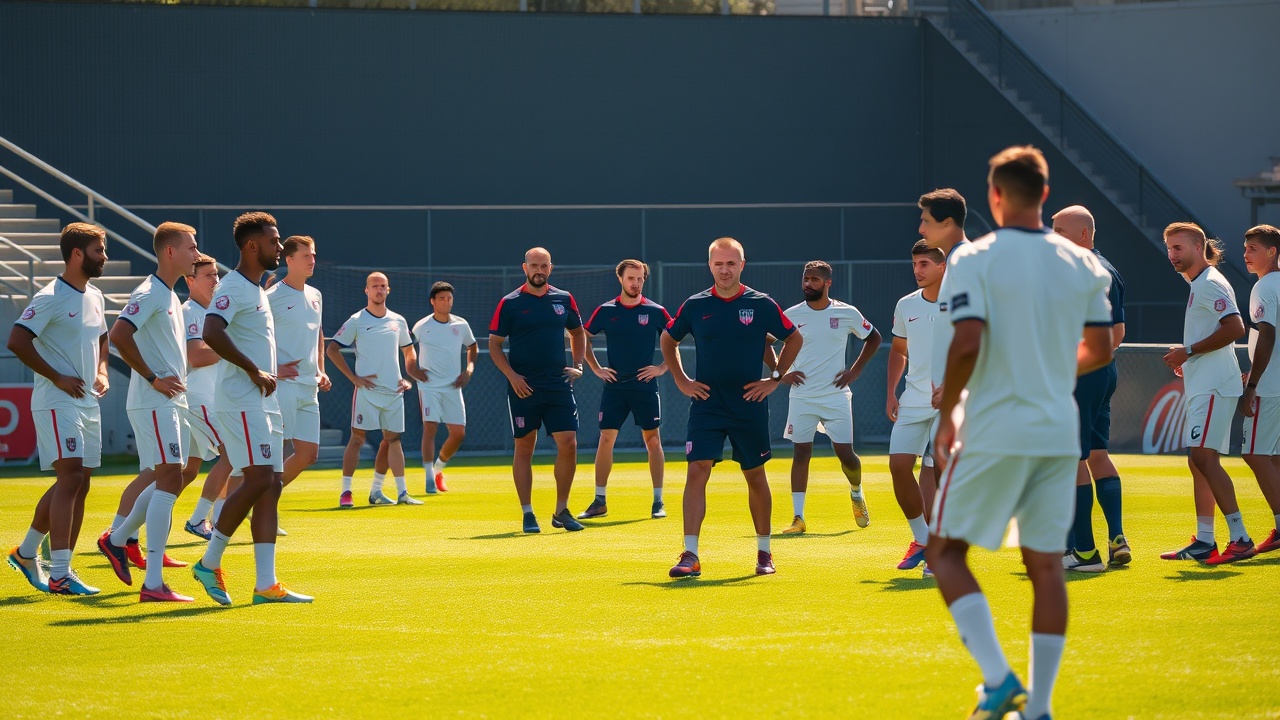U.S. Men’s National Soccer Team Suffers Heavy Defeat
In a disheartening display earlier this week, the United States men’s national soccer team faced a humiliating defeat against Switzerland at Geodis Park in Nashville, Tennessee, ending the match with a discouraging score of 4-0. As they made their way off the field at half-time, the jeers from the crowd were palpable, reflecting the frustration of disappointing performance where the U.S. appeared overwhelmed, reminiscent of a mismatch between varsity and junior varsity teams.
Coaching Decisions and Tactical Failures
Coached by Mauricio Pochettino, the U.S. lineup was significantly weakened, missing over a dozen key players. He took an ambitious approach by implementing nine changes from the squad that narrowly lost to Turkey just days prior. This decision introduced a mix of inexperienced players—many with fewer than five caps—into a high-pressure situation. The strategy backfired spectacularly: Switzerland capitalized early, with Dan Ndoye scoring in the 13th minute and additional goals from Michel Aebischer, Breel Embolo, and Johan Manzambi rapidly following. The American defense struggled to regroup, repeatedly faltering against the Swiss attack.
At half-time, a series of five substitutions and a tactical shift to three center-backs were employed in an attempt to halt the onslaught. However, Pochettino’s admission post-match illustrated the difficulty of the situation. He stated,
“That was my decision, and it was my fault,”
acknowledging his responsibility for the first half’s performance while insisting his intentions were to evaluate player capabilities in anticipation of the Gold Cup.
Historical Context and Current Challenges
This match marked a new low in the U.S. soccer narrative—according to ESPN Stats, it was the first time since November 1980 that the team conceded four goals within the first 40 minutes of play, a statistic made worse by the fact it was their first such occurrence at home. The last comparable run of defeats, which included four consecutive losses at home, occurred back in 1988. Additionally, the U.S. had not faced a four-match losing streak since 2007, highlighting the gravity of the current predicament.
What compounded the plight was an apparent lack of strategy; the U.S. defense fell victim to Switzerland’s straightforward offensive approach. Elementary errors plagued the American side, including failing to track opposing players and disorganized pressing in the midfield. While the team’s youthful squad undoubtedly played a role in their struggles, there was also a clear absence of competitive spirit noted by Pochettino, contrasting with their prior match against Turkey.
Looking Ahead to the Gold Cup
It soon became evident that the team’s depth is thin, particularly when it comes to players necessary for their Gold Cup pursuit. Veterans like Nathan Harriel and Max Arfsten, alongside midfielders Sebastian Berhalter and Quinn Sullivan, struggled to keep pace with a formidable Swiss side. Although late-game substitutes Diego Luna and Tim Ream showcased some redeeming qualities, it would be unwise to draw substantial conclusions from a match dominated by the opponents.
Tim Ream attempted to restore some confidence during post-game comments, emphasizing the importance of learning from mistakes made during the match.
“There are individual errors… and we get punished for them at this level,”
he noted, advocating for calm and reflective analysis as they prepare for upcoming challenges.
As the Gold Cup approaches, confidence levels are low given this display, prompting speculation about how far the U.S. can advance. Should Pochettino shift towards a more experienced lineup and hope for the recovery of crucial midfielder Tyler Adams—who missed the match due to injury—then perhaps there is a ray of hope for improvement. Nevertheless, the U.S. team enters the upcoming tournament shrouded in questions regarding its skill level, composure, and tactical adjustments. These are difficult issues that require immediate attention as they prepare for a crucial series of matches.




